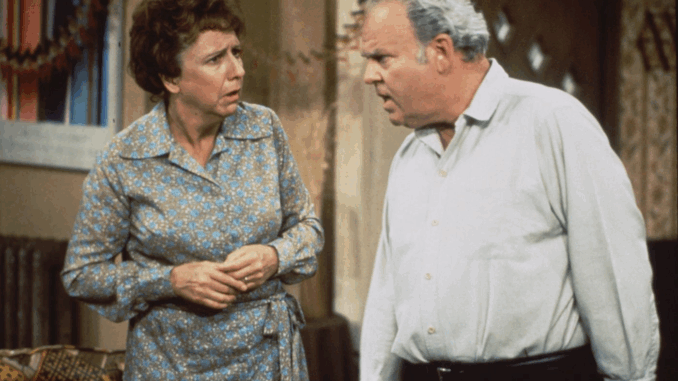
Discover why All in the Family remains a groundbreaking force in TV history. From taboo-breaking topics to unforgettable characters, the show changed sitcoms — and society — forever.
The Sitcom That Changed Everything: Why All in the Family Is Still the Most Influential Show on TV
When All in the Family premiered in 1971, no one could have predicted how radically it would reshape American television. Unlike the glossy, idealized sitcoms of the 1950s and 60s, this bold new series tackled real-life issues head-on — racism, war, gender roles, and class division — all from the living room of one very opinionated man: Archie Bunker.
Breaking Every Rule — On Purpose
All in the Family didn’t just bend the rules of TV. It broke them wide open. The show was raw, uncomfortable, and often hilarious in its brutal honesty. For the first time, viewers saw a working-class family arguing about politics at the dinner table — and not everything was tied up with a neat, happy ending.
Audiences either loved or hated Archie Bunker. That was the point. He wasn’t meant to be a role model, but a reflection of America’s deep cultural divides. By creating tension and conversation, the show invited people to examine their own beliefs.
Characters That Reflected Real America
Archie Bunker, brilliantly portrayed by Carroll O’Connor, became a cultural icon. But the show’s power came from its ensemble cast — including Edith (Jean Stapleton), Gloria (Sally Struthers), and Michael “Meathead” (Rob Reiner). Each represented a different worldview and generation, creating conflict that mirrored real-life family dynamics.
Instead of relying on slapstick humor, All in the Family used wit, sarcasm, and sharp writing to reveal the flaws and fears of its characters. It was comedy with a conscience.
First of Its Kind — and Still Unmatched
All in the Family was the first sitcom to confront racism, sexism, and political tension without sugarcoating. It was also one of the first to feature a toilet flushing on TV — a small but symbolic break from sanitized storytelling. The show was real, raw, and risky — and audiences couldn’t look away.
Its success paved the way for spin-offs like Maude, The Jeffersons, and Good Times, each exploring social themes through their own lens. Today’s shows like The Conners and Black-ish owe a major debt to the trail it blazed.
Its Legacy Lives On
Even decades later, All in the Family remains deeply relevant. Issues it explored — racism, economic struggle, political polarization — are still at the heart of national conversations. The show didn’t try to fix society, but it held up a mirror to it.
In a time when much of television played it safe, All in the Family dared to be uncomfortable — and in doing so, it changed what TV could be.
Conclusion
All in the Family wasn’t just a sitcom. It was a cultural lightning rod that sparked national dialogue. With fearless storytelling, unforgettable characters, and unflinching honesty, it set a new standard for what television could accomplish — and its influence can still be felt in every thoughtful sitcom today.